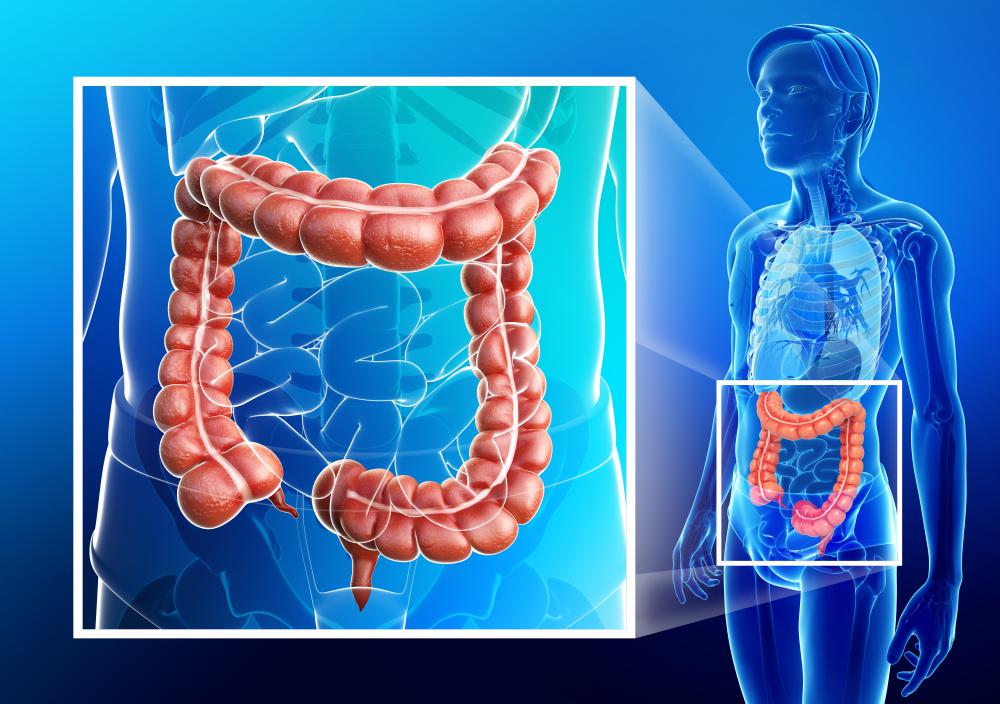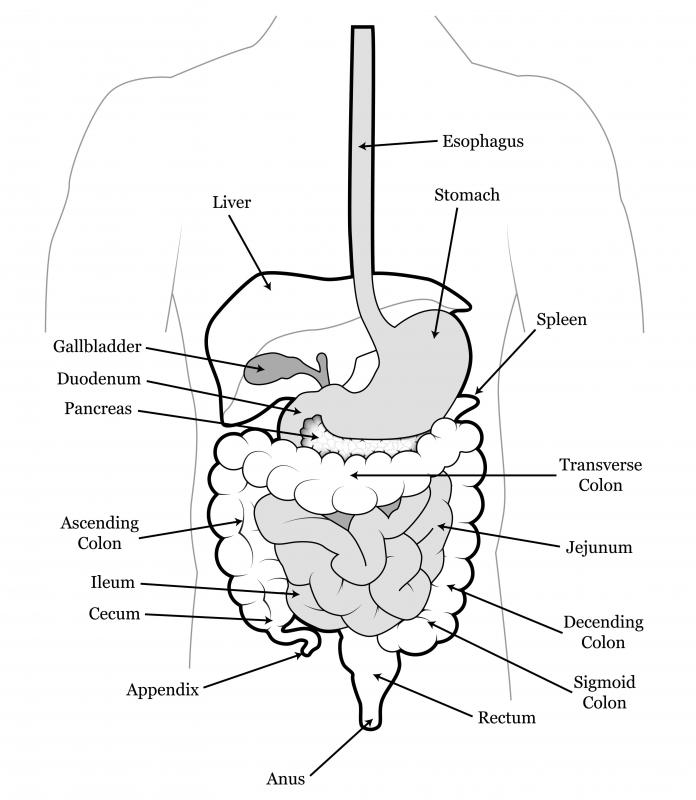At DelightedCooking, we're committed to delivering accurate, trustworthy information. Our expert-authored content is rigorously fact-checked and sourced from credible authorities. Discover how we uphold the highest standards in providing you with reliable knowledge.
Why do Beans Cause Gas?
Many people have noticed that beans can have an effect on the gastrointestinal tract, which often manifests in the form of gas. This tendency is so linked with beans that a popular children's rhyme references it. Many other foods can also increase gas, however, including other legumes, cauliflower, cabbage, Brussels sprouts, and onions. This is because certain sugars in these foods are difficult for the human body to break down; beans cause gas because they are often particularly high in this sugar.
Although most people may not be aware of this, the bulk of the gas created by beans is actually odorless. The scented part is primarily volatile sulfur compounds. Specific gases like sulfur may also be released as bacteria in the gut process other parts of a meal. Although the gas may not smell very good, it is not generally harmful. Diners may want to avoid combining beans with other odorous foods like members of the onion family if they are particularly concerned.

The substance in beans that causes gas is oligosaccharide, a type of sugar that is not normally digestible by the human body. Beans cause gas when this sugar enters the large intestine, which hosts an abundance of bacteria. Since the sugar has not been broken down at earlier stages of the digestive process, these bacteria seize upon it as a source of nutrition, consuming it and quickly multiplying. The resulting gas is a byproduct of the digestive process of the bacteria.

Beans are also high in fiber, another substance that tends to increase gas. In addition, they are often combined with dairy products in burritos and other Mexican foods; many people are familiar with the aftereffects of such food, especially when it is eaten quickly. It appears that eating fast makes it more difficult for the body to break down food, increasing the chance of gas. Stress can also contribute to the issue.

Undercooked beans cause gas in larger amounts. People who want to reduce the risk may want to consider soaking their beans for at least eight hours before cooking them, and rinsing them as well. Canned beans should be thoroughly rinsed as well. Water appears to rinse away some of the gas-causing sugar, making the beans less potentially volatile. It also happens to shorten the cooking time, which can be convenient for cooks in a hurry. When cooking beans, it is important to make sure that they cook all the way to softness.
AS FEATURED ON:
AS FEATURED ON:















Discussion Comments
@turquoise, Post 6: Has anyone ever thought about why we can't digest the type of sugar in beans? Does this mean that our ancestors didn't eat much beans?
Because if they did, our body would have learned to digest the sugar in them and we wouldn't suffer from gas when we eat beans, right? It just passes through your body! It doesn't have to break it down.
There are some kind of drops you can put on your beans before eating them to prevent flatulence. I forget what they are called, but I believe they contain some sort of enzyme to help you break down the food.
Cooking beans with onions can cause flatulence that is foul smelling. I didn't know this until my husband requested that I give the beans more flavor by cooking them with chopped onion and bacon bits.
They tasted wonderful, but they caused smelly flatulence for about twelve hours! We both had it all night long, which made it hard to sleep.
@wavy58 – They do! It does look weird and slightly soapy, doesn't it?
You can actually rinse away some of the causes of excess gas by washing your beans before you cook them. Even if you intend to boil them in water, giving them a good rinse before you do can do away with more gas bubbles.
It's crazy that you can actually see the gas bubbles! Just imagine, those would have been inside you if you hadn't rinsed your beans!
Why do canned beans get so many bubbles on them when I rinse them in a colander? It almost looks as though I dropped dish soap onto them, but I know that I didn't! Do these bubbles have something to do with the gas that beans can cause?
@turquoise-- I haven't thought about it, but maybe it's not a bad thing that we can't digest that sugar. It's because of that sugar that bacteria in the large intestine get an opportunity to multiply.
I know that bacteria that naturally exist in our digestive system is very important for digestion. They say that people who don't eat enough of fiber rich foods like beans have a higher risk of getting colon cancer.
I wish we could get the benefits of beans without the gas though. Foul flatulence is horrible, especially for married people who have to share a bedroom.
Has anyone ever thought about why we can't digest the type of sugar in beans? Does this mean that our ancestors didn't eat much beans?
Because if they did, our body would have learned to digest the sugar in them and we wouldn't suffer from gas when we eat beans, right?
@BambooForest-- I agree with you. Beans are actually extremely healthy and like the article said, the gas it causes is not a bad thing, aside from the embarrassment it might cause in public.
I'm a diabetic and my doctor told me to eat beans and other legumes regularly because it's rich in protein and fiber and has a low glycemic index. Beans don't raise blood sugar suddenly so on the days I eat beans, I feel really good.
So what if it causes flatulence? I think the benefits of beans far outweigh this small disadvantage.
Lots of other foods cause gas which are way less healthy than beans; when trying to lower your chances of getting gas from food, consider removing things high in preservatives and other additives before worrying about high fiber foods like beans.
While beans can give you gas, to a large extent this can be avoided or worked against by consuming beans and other forms of fiber regularly, and also by drinking plenty of fluids. Many people do not get enough fiber, but once your body gets used to it, the fiber can make you feel good and not gassy.
I would like to know since infants are receiving 2,880 oz of soy oil in 9 months from soybeans in their formula; can this make their gastrointestinal system work harder?
Post your comments